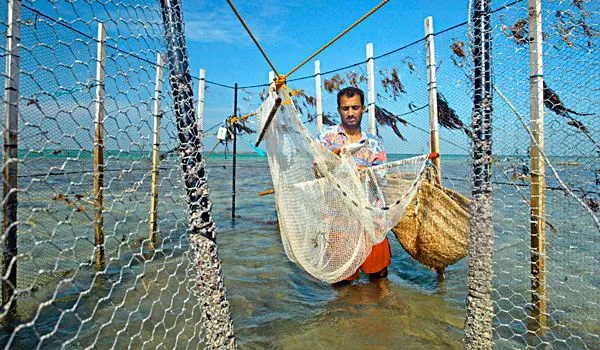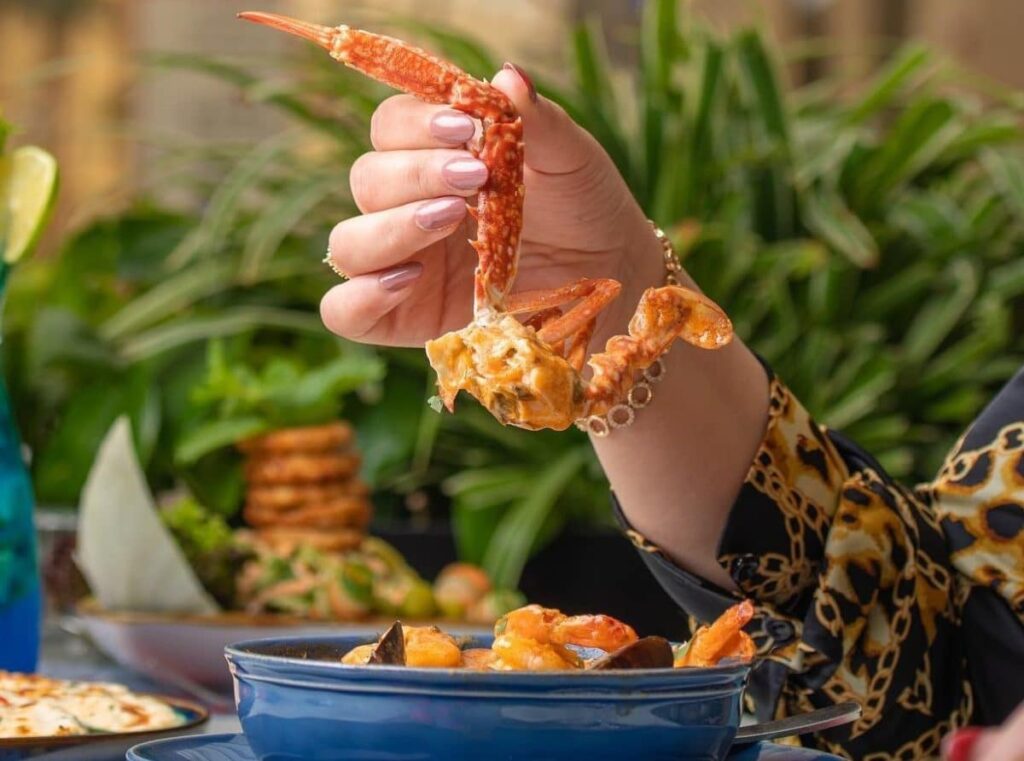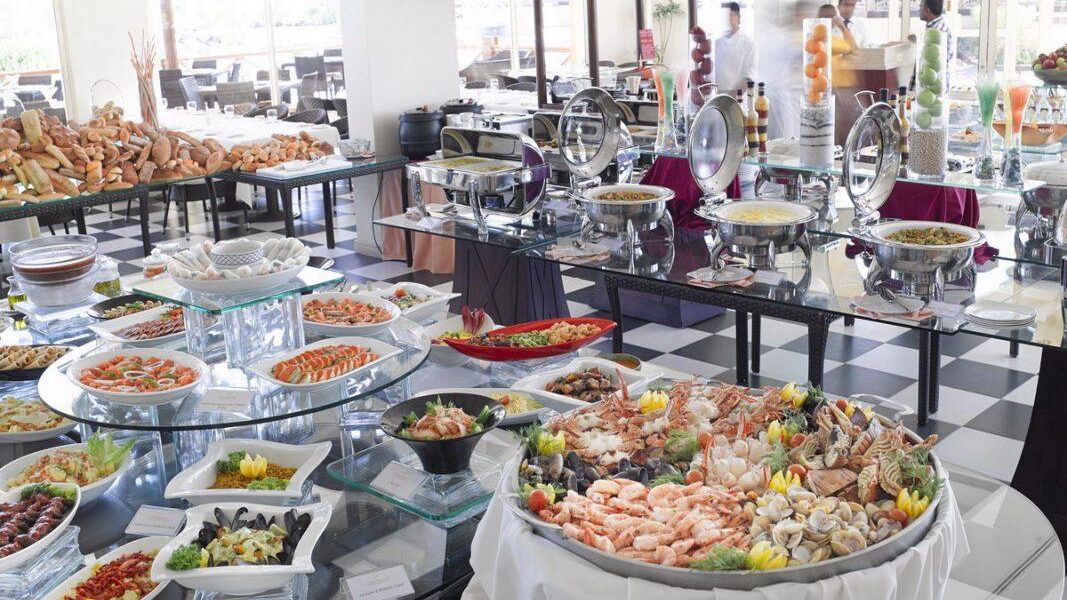The Vibrant Spirit of Bahrain’s Seafood Culture
Bahrain is a nation surrounded by the sea, and the bond between the people and the ocean runs deep. Every morning, the break of dawn ushers in the start of a tradition that has been passed down through generations fishermen setting sail to bring back the freshest catch. The seafood markets across the island are not just trading points but cultural experiences that capture the very heart of Bahrain’s way of life. Exploring these markets is more than just shopping for fresh fish; it is stepping into a living story of community, tradition, and flavor.
A Historical Connection to the Sea
For centuries, the sea has been the backbone of Bahrain’s livelihood. Long before oil, the economy revolved around pearl diving and fishing. Families depended on the ocean’s bounty, and even today, seafood remains an integral part of daily meals. Markets have grown and modernized, but they still carry the echoes of the past. Walking through these bustling spaces, one can sense how the traditions of fishing and trading are still alive, woven into the fabric of modern Bahraini society.
The Morning Market Experience
Visiting a seafood market in Bahrain early in the morning is like watching a well-orchestrated performance. Fishermen arrive with baskets brimming with fresh fish, shrimp, lobster, and crabs. The air fills with the sound of bargaining, greetings, and laughter. Buyers range from restaurant chefs searching for premium ingredients to families looking for the freshest choice for their daily meals. The colorful scene of shimmering fish laid out on ice, the energy of vendors calling out prices, and the hum of the crowd make it a uniquely immersive experience.

A Diverse Array of Seafood Delights
Bahrain’s waters are home to a diverse variety of seafood. From hamour, a beloved grouper fish often grilled or stewed, to safi, known for its delicate taste, the choices are endless. Prawns, crabs, and squid add variety, while seasonal catches like kingfish are celebrated as specialties. Each type of seafood has a traditional cooking style tied to it, showing how cuisine has evolved hand in hand with availability. This diversity reflects not only Bahrain’s geography but also its openness to blending traditional and modern culinary practices.
The Role of Seafood in Bahraini Cuisine
Seafood is at the core of Bahraini cuisine, shaping the flavors that locals grow up with. Dishes such as machboos, a spiced rice dish often paired with fish, and grilled hamour reflect a blend of Middle Eastern spices with the natural taste of the sea. Families often gather on weekends to share seafood meals, reinforcing the bond between food and community. Bahraini cuisine highlights balance: bold flavors complementing delicate seafood, creating meals that tell a story of heritage and creativity.
Sustainability and Traditional Fishing Practices
As seafood demand grows, sustainability has become increasingly important. Many Bahraini fishermen still practice traditional fishing methods, which are less harmful to the marine environment. These practices include using specific nets that avoid catching young fish and respecting seasonal restrictions to allow marine life to replenish. By maintaining these age-old methods, Bahrain not only preserves its cultural identity but also ensures that future generations can enjoy the bounty of the sea.
The Market as a Social Hub
Seafood markets in Bahrain are more than just trading places; they are community centers where stories are shared and bonds are strengthened. Neighbors often meet in the market, exchanging recipes or tips on choosing the freshest fish. Vendors know their regular customers by name, and there is a sense of trust and familiarity that turns a simple transaction into a warm interaction. For many, visiting the market is as much about socializing as it is about shopping.
Modernization and Evolving Trends
While tradition is strong, seafood markets in Bahrain have also adapted to modern needs. Hygiene standards, cold storage facilities, and organized stalls reflect the growing importance of safety and quality. Online seafood delivery services have emerged, catering to busy lifestyles. Yet, despite these changes, the charm of physically visiting a market remains unmatched. The sensory experience of touching, smelling, and seeing the catch of the day cannot be replicated digitally.
Tourism and Culinary Adventures
For visitors, exploring seafood markets is an authentic way to experience Bahrain’s culture. Tourists are often fascinated by the atmosphere, eager to try fresh dishes cooked with ingredients sourced just meters away. Local guides sometimes organize tours where travelers can learn about the history of fishing, meet fishermen, and end the day enjoying traditional seafood meals. This connection between market culture and tourism not only supports local livelihoods but also highlights Bahrain’s identity as a hospitable and flavorful destination.
The Economic Importance of Seafood
Seafood plays a crucial role in Bahrain’s economy. Local markets supply restaurants, hotels, and households, while exports contribute to international trade. Fishermen, vendors, and distributors form a chain of livelihoods that thrive on the seafood industry. The economic importance goes beyond financial numbers; it sustains cultural heritage and strengthens community resilience. In times of change, the seafood trade has always provided a steady source of income for many families.
Challenges Faced by Fishermen
Despite its importance, the fishing industry faces challenges. Rising temperatures, changing sea conditions, and overfishing pose threats to marine life. Some fishermen struggle with competition from imported seafood, which can sometimes be cheaper. Yet, resilience is part of Bahraini culture. Many fishermen adapt by diversifying their techniques, joining cooperatives, or innovating with modern equipment while still respecting traditional methods. Their dedication ensures that the markets remain vibrant and well-stocked.
The Cultural Symbolism of Seafood
In Bahrain, seafood is not just food it is a symbol. It represents perseverance, community, and a connection to nature. Serving seafood at family gatherings or special occasions reflects hospitality and abundance. Fishermen’s tales passed down through generations remind people of the courage it takes to face the sea. The cultural symbolism attached to seafood reinforces its place as a cherished part of national identity.
Seafood and Modern Lifestyles
As lifestyles evolve, seafood remains central to the Bahraini diet but is being prepared in new ways. Contemporary chefs experiment with international techniques, infusing Bahraini seafood with global flavors. From sushi restaurants sourcing local fish to fusion dishes in modern eateries, seafood bridges tradition with innovation. This trend not only broadens the culinary scene but also places Bahraini seafood on the international culinary map.

A Day in the Life of a Fisherman
To understand the soul of seafood markets, one must step into the shoes of a fisherman. Their day often begins before sunrise, battling waves and weather to bring home the freshest catch. The job is physically demanding, requiring both strength and skill. Yet, for many, fishing is not just an occupation—it is a passion and a family tradition. The pride they feel when their catch is displayed in markets and enjoyed in households across Bahrain is immeasurable.
Preserving Traditions for Future Generations
Efforts are being made to ensure that fishing traditions are passed down to younger generations. Programs encourage young Bahrainis to understand the importance of the sea, learn sustainable practices, and appreciate the cultural value of seafood. By preserving these traditions, Bahrain keeps alive the lessons of resilience, respect for nature, and community spirit that the fishing culture embodies.
Festivals and Celebrations Around Seafood
Seafood often takes center stage in local festivals and gatherings. Community events sometimes celebrate seasonal catches, bringing together families, chefs, and visitors to enjoy traditional recipes. These celebrations are not only about food but also about unity. Music, storytelling, and cultural displays accompany the meals, turning seafood into a reason for joy and togetherness.
Health and Nutrition Benefits
Beyond its cultural and economic importance, seafood is also valued for its nutritional benefits. Rich in protein, omega-3 fatty acids, and essential minerals, it supports healthy living. In Bahrain, where seafood is readily available, people benefit from a diet that balances flavor with health. Families often choose seafood as a healthier alternative to red meat, making it a staple in both traditional and modern meals.
The Future of Seafood in Bahrain
Looking ahead, Bahrain is committed to strengthening its relationship with the sea. With growing awareness about sustainability, modernization of markets, and rising interest from tourists, the future looks promising. Innovation in aquaculture and improved fishing practices are also paving the way for a more sustainable industry. What remains constant, however, is the deep cultural connection between the Bahraini people and the sea a relationship that ensures seafood will continue to be celebrated for generations.
Conclusion: The Living Heart of Bahrain
Exploring seafood markets in Bahrain is more than just a culinary adventure; it is a journey into the heart of the nation. These markets are where tradition, community, economy, and culture converge. They reflect Bahrain’s history, its present vibrancy, and its aspirations for the future. Whether you are a local choosing the perfect fish for a family dinner or a visitor experiencing the magic of a bustling market for the first time, the seafood culture of Bahrain leaves a lasting impression. It is a reminder that the sea is not only a source of sustenance but also of identity, resilience, and joy.
Do follow Gulf Magazine on Instagram.
Also Read – Sweet Harmony: Bahrain’s Dessert Culture Balances Tradition and Modernity



